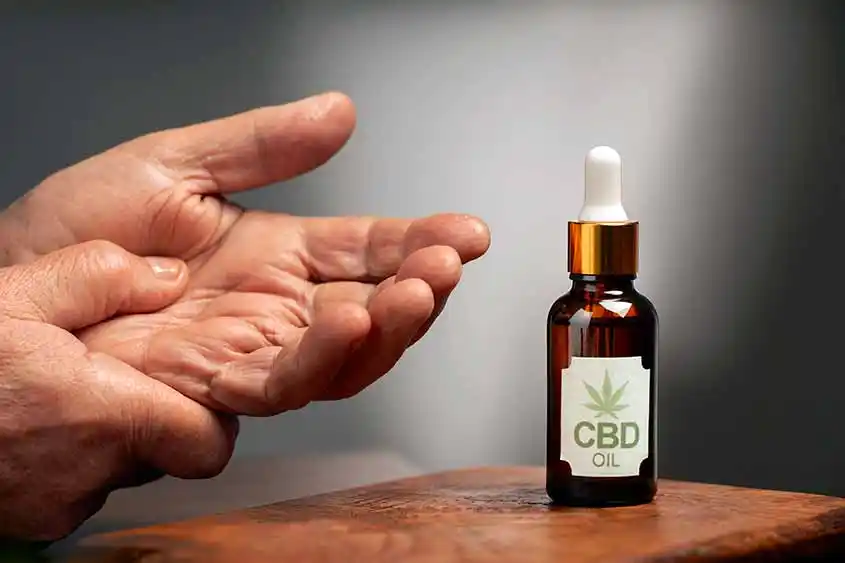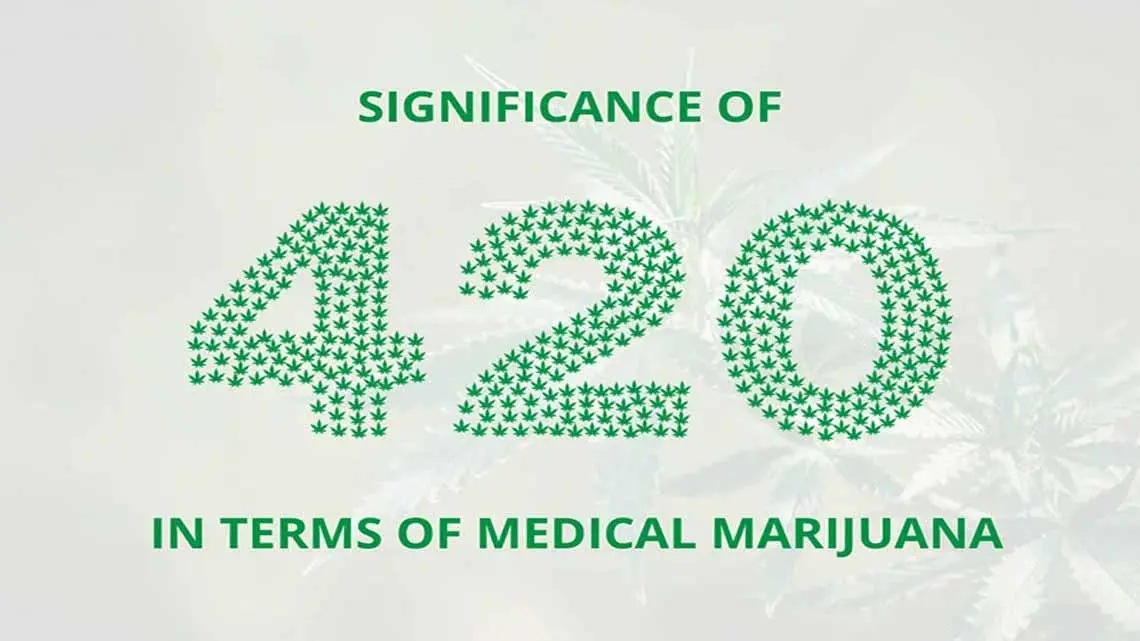April 20 is a day all marijuana enthusiasts look forward to. Massive rallies take place statewide, particularly in those states that have medical and, or recreational marijuana legalization in place. The extravaganza surrounding this day is growing each year, with more & more states legalizing the use of medical marijuana. Through this blog, we dive deep into the importance of the date 420 concerning medical marijuana.
What is 4/20? Why is it on April 20?

To put it simply, Marijuana 420 is World Cannabis Day and is a holiday celebrating cannabis. This date has become synonymous with marijuana culture and people celebrate it with gatherings and activism. Despite its widespread recognition, the origins of Marijuana 420 remain a mystery! There are several theories about how it came to be. Here’s a closer look at some of the most popular explanations:
The Waldos: The Most Popular Theory
The most widely accepted theory traces the origins of Marijuana 420 to a group of high school students in San Rafael, California, known as “The Waldos.” In the early 1970s, these teenagers used to meet at 4:20 pm after school to search for an elusive, abandoned cannabis crop they had heard about. They would gather at the Louis Pasteur statue on the grounds of San Rafael High School and use “420” as a code for their activities. Although they never found the crop, the term “420” became their shorthand for smoking marijuana.
The Grateful Dead Connection
The Waldos had connections to the band The Grateful Dead, also based in Northern California. Through this connection, the term “420” began to spread within the Deadhead community and beyond. The band’s fans adopted the term, and it eventually became part of the larger cannabis culture.
Alternative Theories
Other theories about the origin of 4/20 include:
- Police Code: Some believe that 420 was a police code for marijuana-related offenses in progress. However, this theory is now debunked as an urban legend.
- Bob Dylan Song: Another theory links 4/20 to Bob Dylan’s song “Rainy Day Women #12 & 35,” which includes the lyric, “Everybody must get stoned.” If you multiply 12 by 35, you get 420, though this connection is considered more of a coincidence than a deliberate origin.
Despite these various theories, there is no conclusive proof for any single story. What is clear, however, is that the term “420” has become a global symbol for cannabis culture, celebrated annually on April 20th.
Marijuana Legalization is Changing 420!
The series of marijuana legalization across US states over the last decade has propelled Marijuana 420 into a day for weed enthusiasts to celebrate. Either they celebrate legalization, or people take out rallies demanding legalization (in states where the bill has not yet passed). This is in significant contrast to the 1970s when this date signified a small-scale movement that included cannabis as a symbolic representation to protest against the policies of the state/nation.

Celebrations in Legalized States
In states where marijuana is legalized for medical or recreational use, 4/20 has become a significant cultural event. These celebrations often include:
- Festivals and Concerts: Large public gatherings, featuring live music, food vendors, and cannabis-related merchandise, create a festive atmosphere. Events like the 420 Rally in Denver or the High Times Cannabis Cup attract thousands of attendees.
- Public Consumption: In states with permissive laws, public consumption of marijuana during 4/20 events is common. Parks and other public spaces turn into areas where enthusiasts openly enjoy their cannabis products.
- Community and Education: These events also focus on community building and education, with workshops, seminars, and panels discussing the latest in cannabis research, cultivation techniques, and the benefits of marijuana for health and wellness.
Activism in Non-Legalized States
In contrast, states where marijuana remains illegal see 4/20 as a day of activism and advocacy:
- Protest Rallies: Activists organize marches and rallies to demand changes in marijuana legislation. These events often draw attention from local media and help raise awareness about the benefits of cannabis legalization.
- Grassroots Campaigns: 4/20 provides a platform for grassroots organizations to mobilize supporters, gather signatures for petitions, and engage in dialogue with lawmakers and the public.
- Symbolic Acts: Acts of civil disobedience, such as public smoke-ins, highlight the perceived injustices of current marijuana laws and aim to pressure authorities to reconsider their stance.
The Evolution from Protest to Celebration
The transformation of 4/20 from a day of protest to a day of celebration reflects the broader shift in societal attitudes toward marijuana:
- Historical Context: In the 1970s, 4/20 was a countercultural statement against stringent drug laws and a symbol of defiance against the establishment. It was a grassroots effort to highlight the injustices and push for reform.
- Modern Context: Today, with increasing legalization, 4/20 is more about celebrating the victories won by the cannabis movement. It’s a recognition of how far the movement has come and a reminder of the ongoing efforts needed to achieve nationwide legalization.
The Role of Advocacy Groups
Organizations like NORML (National Organization for the Reform of Marijuana Laws) and the Marijuana Policy Project (MPP) play a crucial role in the changing landscape of 4/20:
- Legislative Efforts: These groups work year-round to influence legislation, and 4/20 is a focal point for their efforts. They use the day to highlight legislative successes and outline future goals.
- Public Education: Advocacy groups also use 4/20 to educate the public about the benefits of marijuana, debunk myths, and provide information on how to get involved in the legalization movement.
- Support Networks: They offer support to individuals and communities affected by harsh marijuana laws. Moreover, they provide legal assistance and resources to those in need.
The Impact on Public Perception
The legalization movement has significantly altered public perception of 4/20 and marijuana in general:
- Normalization: As more states legalize marijuana, 420 celebrations contribute to the normalization of cannabis use. Public events and media coverage help shift the narrative from marijuana as an illicit substance to a legitimate medical treatment and recreational option.
- Economic Influence: The economic benefits of legalization, such as job creation and tax revenue, are often highlighted during Marijuana 420 events. This point highlights the positive impact of the cannabis industry on local economies.
- Health and Wellness: Increased focus on the medical benefits of marijuana during 4/20 events helps reduce stigma and promote acceptance of cannabis as a valuable treatment for various health conditions.
4/20 is Becoming a Commercial Event
From being a symbol of protest against the government’s policies to being a commercialized event, the date 4/20 has come a long way over the past half a century. Today, 4/20 is an opportunity for companies from the cannabis industry to leverage by marketing their products and services, potentially earning much higher profits. This shift has significant implications, especially for the medical marijuana sector.
The Rise of Medical Marijuana Marketing
As 4/20 has evolved, it has become a pivotal date for the medical marijuana industry to highlight its products and advancements:
- Promotional Campaigns: Dispensaries and cannabis companies launch special promotions and discounts around 4/20 to attract patients and highlight the benefits of medical marijuana. These promotions often include discounts on popular medical strains, edibles, and other cannabis products tailored for health and wellness.
- Product Launches: Companies frequently choose 4/20 to introduce new medical marijuana products. These launches are often accompanied by educational campaigns that inform consumers about the therapeutic benefits and proper usage of new products.
- Patient Outreach: Medical marijuana providers use 4/20 as an opportunity to reach out to new and existing patients, offering seminars, workshops, and Q&A sessions with healthcare professionals to educate them about the medical uses of cannabis.

Big Events and Their Medical Focus
Large events like the Cannabis Cup, traditionally known for their recreational focus, have increasingly incorporated medical marijuana into their agendas:
- Medical Marijuana Competitions: These events often feature competitions where growers and producers can showcase the best medical marijuana strains. Awards are given to strains that excel in providing relief for specific conditions such as chronic pain, anxiety, and epilepsy.
- Educational Panels: Events now include panels and seminars featuring doctors, researchers, and industry experts who discuss the latest findings in medical marijuana research. Topics often cover the efficacy of cannabis in treating various ailments, proper dosing, and patient success stories.
- Vendor Exhibits: Exhibits at these events provide a platform for medical marijuana companies to demonstrate their products, share clinical data, and interact with potential patients and healthcare providers. This helps bridge the gap between medical marijuana producers and the patient community.
Economic Impact and Investment
The commercialization of marijuana 420 has had a notable economic impact, especially in states with legal medical marijuana:
- Increased Revenue: The influx of patients taking advantage of 4/20 promotions significantly boosts sales. This not only benefits the businesses directly involved. It also contributes to state tax revenues from cannabis sales.
- Investment Opportunities: The visibility of 4/20 attracts investors looking to capitalize on the growing medical marijuana market. Investment in medical cannabis research and production has increased, leading to improved product quality and availability.
- Job Creation: The demand generated by 4/20 events and promotions leads to job creation within the medical marijuana sector, from cultivation and production to retail and healthcare services.
Balancing Commercialization with Patient Care
Yes, the commercialization of 4/20 offers significant opportunities. However, it also presents challenges to maintain the focus on patient care:
- Ethical Marketing: Companies must ensure their marketing strategies are ethical and informative. They should focus on the medical benefits and proper use of marijuana rather than solely on sales.
- Patient Education: With the influx of new products and promotions, it is crucial to provide accurate and comprehensive education to patients. This includes information on dosage, potential side effects, and interactions with other medications.
- Regulatory Compliance: Maintaining strict adherence to state and federal regulations is essential to ensure the safety and efficacy of medical marijuana products. Companies must prioritize compliance to protect patient health and uphold industry standards.
4/20’s Shift Shows How Marijuana Legalization Will Change Cannabis
All in all, the rise in marijuana legalization nationwide has transformed the 4/20 landscape into a celebratory commercial event. The countless rallies demanding marijuana legalization conducted over the years on this day are finally bearing fruit, with lawmakers recognizing the importance of medical marijuana in treating various chronic health conditions. However, it’s vital to stay wary of recreational marijuana legalization and promotion by big corporations who are hungry for profits, considering the adverse effects it can have on the nation’s youth. To sum it up, 4/20 needs to be a celebration of medical marijuana legalization and responsible marijuana consumption above everything else!

The Legalization Movement and Medical Marijuana
The nationwide push for marijuana legalization has brought significant changes to the cannabis industry, particularly in the medical field:
- Recognition of Medical Benefits: Legislative changes have increasingly acknowledged the therapeutic benefits of medical marijuana. Conditions such as chronic pain, epilepsy, multiple sclerosis, and PTSD are now commonly treated with cannabis, thanks to growing evidence supporting its efficacy.
- Increased Access for Patients: Legalization has improved access to medical marijuana for patients who need it. Dispensaries have become more widespread than ever before. As a result, patients can now obtain cannabis easily and safely, with better quality control and product consistency.
The Impact of 4/20 Celebrations on Medical Marijuana
As 4/20 becomes more mainstream, its impact on medical marijuana is multifaceted:
- Advocacy and Awareness: 4/20 serves as a platform for advocacy, helping to raise awareness about the medical benefits of marijuana. Events on this day often include educational sessions, patient testimonials, and discussions on how cannabis can improve the quality of life for those with chronic conditions.
- Policy Influence: The visibility and media coverage of 4/20 events can influence public opinion and policy. Lawmakers are more likely to consider reform when they see the strong, organized support for medical marijuana during these celebrations.
The Commercialization of 4/20
While commercialization brings economic benefits, it also poses challenges:
- Corporate Influence: The entry of large corporations into the cannabis market has led to concerns about profit-driven motives overshadowing patient care. It’s crucial to ensure that medical marijuana remains accessible and affordable, and that product development is guided by patient needs rather than just profit margins.
- Marketing Ethics: As companies vie for a share of the lucrative cannabis market, ethical marketing is the need of the hour. This includes honest advertising about the benefits and risks of marijuana, avoiding targeting underage consumers and prioritizing educational content.
Balancing Recreational and Medical Use
With the rise of recreational marijuana, it’s important to maintain a clear distinction between medical and recreational use:
- Medical Integrity: Medical marijuana should continue to be developed and marketed based on scientific evidence and patient needs. Recreational legalization should not undermine the integrity of medical cannabis programs.
- Youth Protection: Safeguarding the nation’s youth from potential adverse effects is paramount. This includes enforcing strict age restrictions, providing clear information about the risks of marijuana use for developing brains, and promoting responsible consumption.
Conclusion
The significance of 420, particularly in terms of medical marijuana, has evolved remarkably over the decades. Originally emerging from a clandestine ritual among a group of high school students in California, 4/20 has grown into a globally recognized day that celebrates cannabis culture and advocates for legalization. As states across the U.S. increasingly recognize the medical benefits of cannabis, April 20 has become a powerful platform for highlighting the progress made in medical marijuana reform, promoting the therapeutic benefits of cannabis, and advocating for patient access.
However, with the commercialization of 4/20, it is crucial to maintain a focus on the medical integrity of cannabis. The influx of corporate interests and the growing market for recreational marijuana pose potential challenges that need careful management. Ensuring ethical marketing practices, prioritizing patient care, and safeguarding youth from adverse effects are vital steps in navigating this new landscape. Ultimately, 4/20 represents both the triumphs and ongoing struggles within the cannabis movement, underscoring the importance of medical marijuana and its role in enhancing the quality of life for many individuals.
Consult a healthcare professional before using cannabis products; the advice provided is not a substitute for medical guidance.

